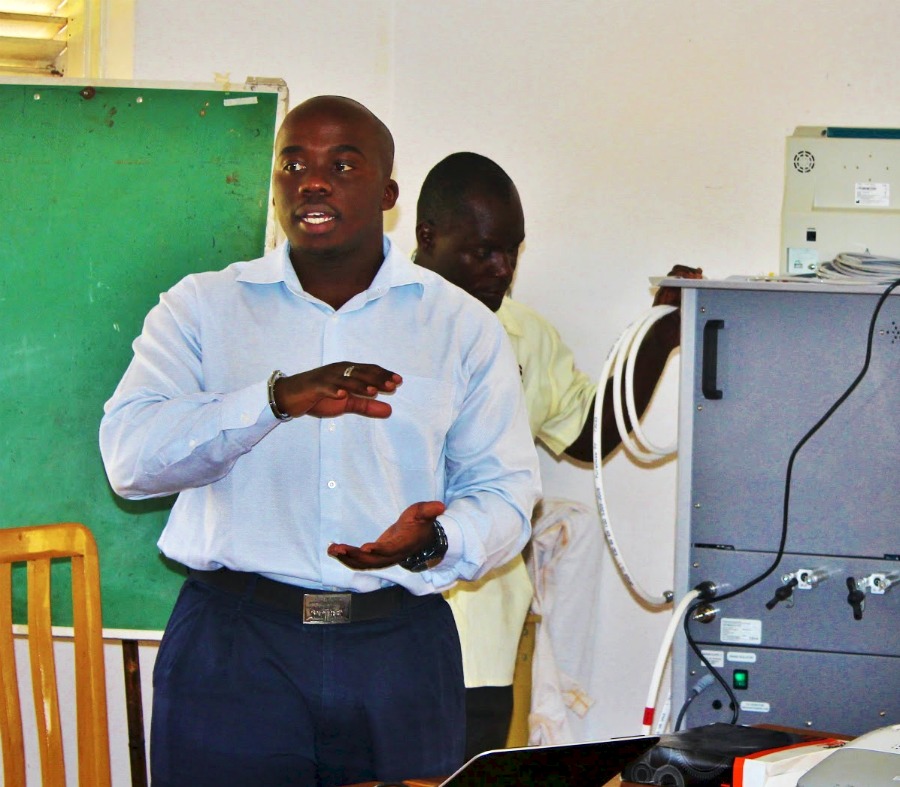
Anaesthesia Champions: 4 Questions for Dr. Emmanuel Ayebale



To continue our quarterly “Anaesthesia Champions” blog series, we are pleased to feature Dr. Emmanuel Ayebale for his work in global surgery and anaesthesia. Dr. Ayebale, an Anaesthesiologist at Mulago Hospital in Kampala, Uganda, has worked tirelessly so that more people have access to safe, reliable anaesthesia at hospitals in his country.
Below are 4 Questions for Dr. Ayebale about his background in health care and anaesthesia. We hope this series will continue to give you more insight into what it takes to be a true “Anaesthesia Champion” at different hospitals around the world and we are happy to honor him in this Winter edition.

1) How did you choose to specialize in anesthesia and where did you train?
To be honest anaesthesia chose me! The opportunity to do a Residency in anaesthesia came at the right time with a full scholarship being offered. Plus anaesthesia was a field of medicine that I had secretly liked right from medical school. So the decision to go into anaesthesia came naturally to me at the time (2009). I trained in Makerere University in Kampala (Uganda).
2) What do you see is the greatest challenge to the safe, reliable delivery of anesthesia in Uganda?
The greatest challenge in delivering safe anaesthesia in Uganda is the shortage of anaesthesia providers, both Physician and Nurse Anaesthetists (commonly known as Anaesthetic Officers). With only about 40 qualified Anesthesiologists in the whole country and close to 300 Anaesthetic Officers, its obvious that we cannot adequately serve the 34 million citizens of Uganda. Without the ever-so-important presence of a well trained anaesthesia provider throughout an anaesthetic, safety cannot be guaranteed.
3) What impact have you seen the UAM have in the hospitals involved in the study?
The UAM has shown many anaesthesia providers that it is possible to have an anaesthesia machine that is very safe and will keep their patients alive in the most extreme of circumstances. It has also helped the hospitals in which it has been introduced to begin the transition from using (hard to obtain) ether inhalational anaesthesia to using generally available anaesthetic gases like halothane and isoflurane.
4) What feedback have you received from the anesthesia providers about the UAM?
The anaesthesia providers feel safer and more comfortable using the UAM since it is very safe for their patients. They will often choose to use the UAM instead of other anaesthetic machines because the UAM is very simple to use and is designed for safety, safety, and safety.

Gradian says a big “thank you” to Dr. Ayebale for being a true “Champion” in the field of anaesthesia and for your efforts in making surgery safer for all!